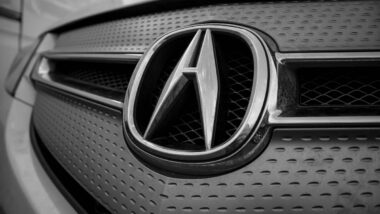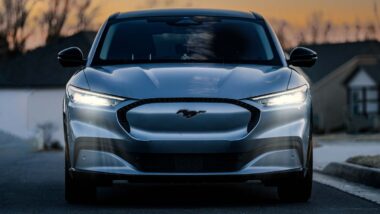Top Class Actions’s website and social media posts use affiliate links. If you make a purchase using such links, we may receive a commission, but it will not result in any additional charges to you. Please review our Affiliate Link Disclosure for more information.

Ryan Baldwin, along with five other plaintiffs have sued Kia Motors America, Hyundai Motor America, FCA US, Mitsubishi Motors America, American Honda Motor Co., Acura, Toyota Motor Sales USA Inc., and ZF-TRW Automotive Holdings Corp., stating that the companies should have recalled the cars with the defective airbags.
“At issue is the vehicles’ airbag control unit (‘ACU’) manufactured by supplier ZF-TRW that becomes over-stressed by excess electrical energy generated during a crash. The ‘electrical over-stress’ forces the ACU to seize-up at the moment of impact, causing the airbags to not deploy and the seatbelt locks to fail,” the Kia class action lawsuit alleges.
The airbags in the Baldwin’s 2014 Mitsubishi Lancer Evolution allegedly have the airbag defect. Consequently, the value of his car has diminished. The plaintiff says that if he had known of the defect prior to buying the vehicle, he wouldn’t have done so or would have paid a lesser price for it.
“Because the Acura, FCA, Honda, Hyundai, Kia, Mitsubishi, and Toyota Defendants are refusing to acknowledge any revocation of acceptance and return immediately any payments made, Plaintiffs and the other Class members have not reaccepted their Defective Vehicles by retaining them,” the plaintiffs allege.
The Honda class action lawsuit points to a 2018 National Highway Safety Traffic Administration (NHSTA) investigation into the defects, in which they found out that the airbag company had been having talks with the vehicle makers since 2011.
“Under the Federal Motor Vehicle Safety Standards, manufacturers are required to issue a full vehicle recall within five days of learning of a defect,” the Hyundai class action lawsuit claims.
The NHSTA continued the investigation in April 2019 and expanded the range to other vehicle manufacturers who had installed the airbag control unit in their cars.
“At its early investigation stages, NHTSA has confirmed that the defective ACU has been linked to at least four deaths; however, NHTSA complaint logs confirm that many more fatalities have been reported to NHTSA that are still under investigation,” the Toyota class action lawsuit alleges.
The Mitsubishi class action lawsuit states that the defendants did not notify the car buyers of the airbag defect and “at the same time Defendants marketed and represented that the Class Vehicles were safe and reliable.”
The plaintiffs allege that the defendants violated the Magnuson-Moss Warranty Act, California’s Song-Beverly Consumer Warranty Act and Breach of the Implied Warranty of Merchantability, California Unfair Competition Law, California Consumer Legal Remedies Act, fraudulent concealment, and unjust enrichment.
Class Members include all U.S. residents who own one of numerous Class vehicles including: Acura, Dodge Ram, Fiat, Jeep Liberty, Jeep Patriot, Honda Accord, Honda Civic, Hyundai Sonata, Kia Optima, Kia Sedona, Mitsubishi Lancer, Ram 1500, Ram 2500, Toyota Avalon, Toyota Corolla, Toyota Sequoia, among others.
The proposed Class is represented by Jonathan A. Michaels, Kyle Gurwell and Ryan Jones of MLG APLC and Robert N. Kaplan and Laurence D. King of Kaplan Fox & Kilsheimer LLP.
The Airbag Defect Class Action is Baldwin, et al. v. Kia Motors America Inc., et al., Case No. 8:19-cv-01376, in the U.S. District Court for the Central District of California.
Read More Lawsuit & Settlement News:
Tommy Hilfiger Class Action Alleges Deceptive Pricing Scam
ATTORNEY ADVERTISING
Top Class Actions is a Proud Member of the American Bar Association
LEGAL INFORMATION IS NOT LEGAL ADVICE
Top Class Actions Legal Statement
©2008 – 2024 Top Class Actions® LLC
Various Trademarks held by their respective owners
This website is not intended for viewing or usage by European Union citizens.















34 thoughts onKia, Honda, Toyota Class Action Alleges Airbag Defect In 12M Vehicles
Add me please. I’d like to know why if they knew airbags were bad and had to replace them years ago in my Sewuoia how come they were in my 2016 4 runner?
Add me please for my Honda Accord
Please add me I have a Honda Accord and a Dodge Durango.
Add me I owned a 2011 Sedona
I Have a 2014 Kia Forte EX, please let me know if this vehicle is one of the affected ones.
Thank you
I had a Kia Soul and got into a accident and we got trapped in the car from the seat belts that left me black and blue and all my ribs broken and.I was so badly bruised for many months and my passenger settled for the cause the air bags did to her but not me because they said.i didn’t have medical insurance through my insurance company and my car was totaled
Add me I own a 2016 KIA. I also owned a 2011 KIA that was totaled out.
ADD ME I own a 2011 Kia Sedona
Add me please, 2012 Kia Sorento
add me to list I own a honda accord 2012